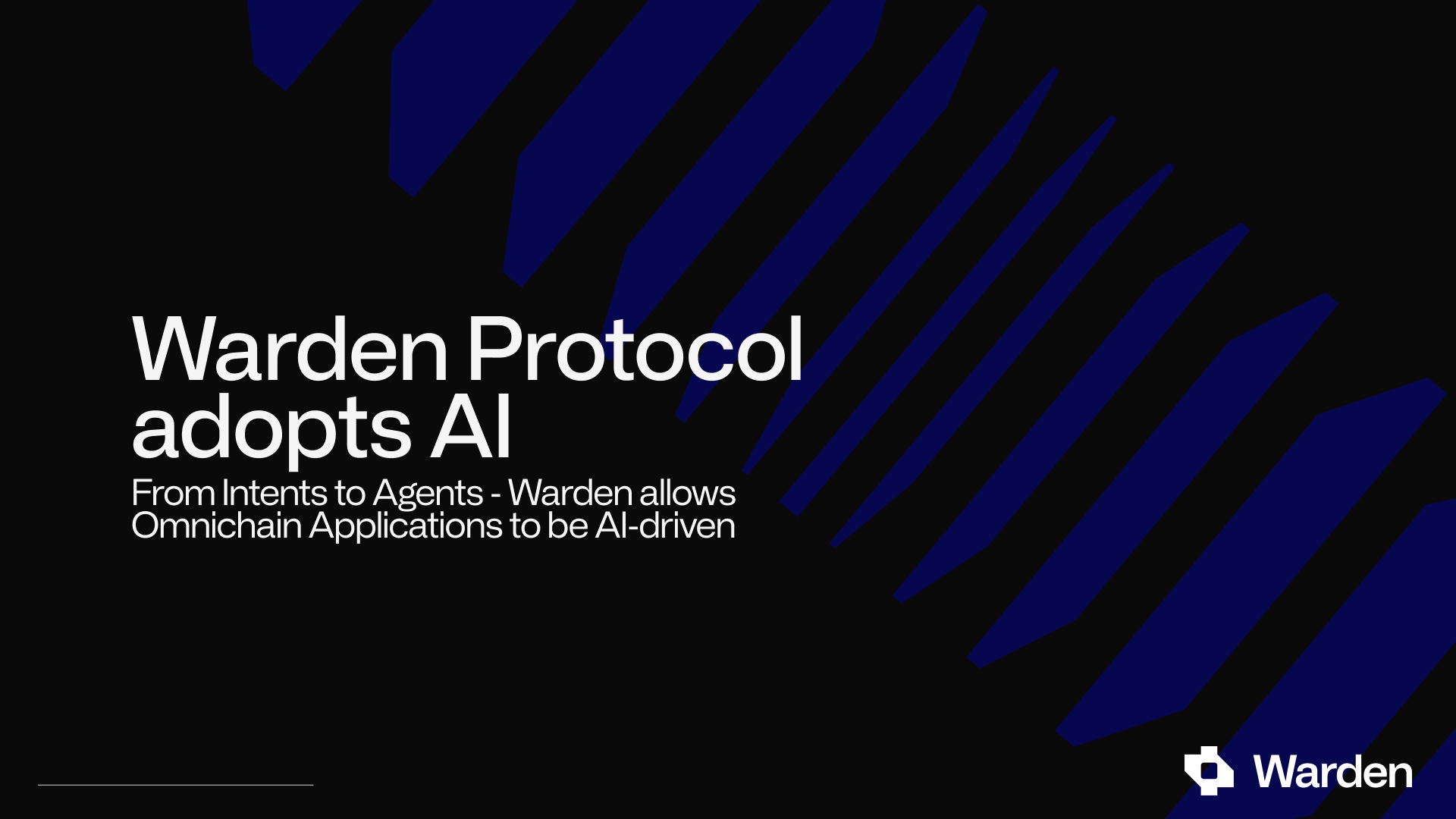
Since inception, Warden Labs has been building foundational infrastructure to abstract the complexities of building in, and interacting with, the Web3 ecosystem.
At Warden, we have been building a truly modular architecture, unbundling the typical monolithic security stack that exists, enabling users and builders to pick from a variety of cryptographic tools to easily secure and manage their key material. We have built an interoperability suite that enables users to interact seamlessly with over 100 blockchains, bridge assets across 64 chains, and leverage a native high-performance oracle. All of this can be protected and governed by Intents, a set of user-supplied conditions under which a transaction is signed with a private key, with each Intent containing criteria that must be met for a transaction to be considered valid.
Warden lets developers use these building blocks to deploy applications with CosmWasm - and soon in EVM - the result of this can be powerful omnichain applications (we call these “OApps”). However, as we attempted to roadmap the direction of travel for our Intents, we realized that we can unleash the power of Warden by enabling developers to deploy not just an intent, but instead, an agent, capable of the extraordinary.
An Agent, Making Intents Smarter
What is an agent? Typically this is a program that can interact with its environment, collect data, and use the data to perform self-determined tasks to meet predetermined goals. Our intents already act like agents, as they are capable of being both proactive and reactive.
Our goal must be to make these Agents as useful as possible. Using our intent-specific language standardizes interface-, transmission semantics and execution behaviors. It’s a composable, extensive, declarative, human-readable, English-like language built so users can configure and preview the transaction conditions. So the present challenge for us was how to make these Agents extraordinary - even agentic.
Making Warden Agentic
An agentic AI system is capable of reasoning and collaborating. It can, autonomously, break down tasks into multiple steps and carry out those sub tasks, rather than just responding to prompts one at a time. Warden’s goal is now to bring agentic AI workflows to developers so that they can, as an example - autonomously initiate actions - and build complex smart workflows.
What can a developer build with an Agentic Application?
Today AI typically automates, or simplifies, repetitive, predetermined tasks. With Agentic AI, a developer has the ability to build a trainable agent that can carry out various complex actions. These Agents will be capable of initiating an action, or enforcing immutable conditions on any transaction. These Agent economies can be combined with OApps to build a new class of application - we call these Agentic Applications - examples include:
Smart order-routing of the best price venue, alongside other user-defined criteria (e.g. risk rating, gas costs, etc)
A new type of trading marketplace, where instructions placed by users are not passive (e.g. a limit order), but are active, based on complex criteria they set
Auto-Yield rebalancing via a product which rebalances a basket of yield products based
Smart gas abstraction, automated gas refills and routing when chain fees are low
Warden’s Focus
We know we must be ready to harness the upcoming wave of AI innovation. Our new focus, bringing agentic AI to Warden’s omnichain protocol, will be the new driving force for our protocol. We will build AI-agnostic infrastructure, so that developers can build and launch powerful Agents that will drive forward a new class of smart contract applications.